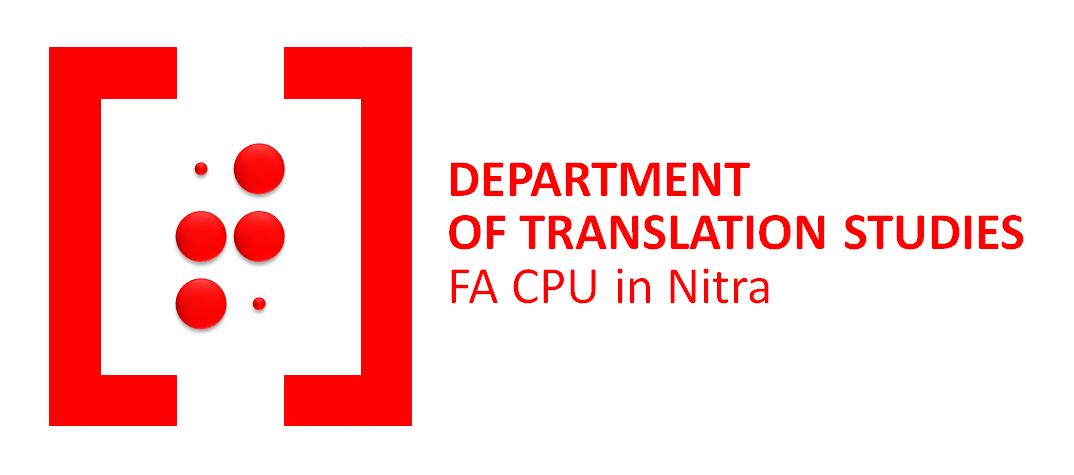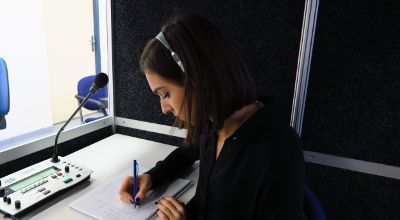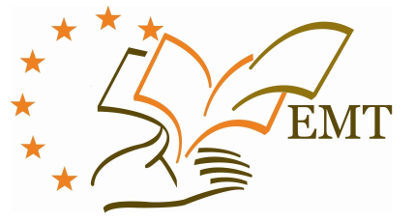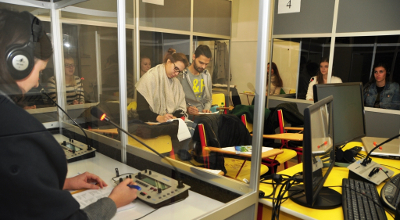Professionalism
All teachers working at the Department of Translation Studies, FA, CPU in Nitra have a lot of translation and interpreting experience and participate in significant local and international research projects in the field of translation and interpreting studies, computer linguistics, machine or audiovisual translation, etc.
Quality
Master’s study programmes in translation and interpreting FA CPU were awarded the international quality certificate European Master’s in Translation (EMT), adding our master’s studies to the network of the highest quality translation studies programmes among European universities entitled to use the label and logo EMT.
Tradition
We follow the rich tradition of theoretical research in translation studies in Nitra going back to the 1970s and 1980s. At that time, Nitra was already well known in the field of translation studies both in Slovakia and abroad thanks to Professor Anton Popovič and his colleagues from the Institute of Literary Communication at the former Pedagogical Faculty in Nitra.
The Department of Translation Studies FA CPU also provides the rigorous procedure. All necessary information about the procedure can be found on the website Filozofická fakulta UKF.
-
Published: 13 December 2018
BACHELOR'S DEGREE
All applicants for a full-time Bachelor's study programme: Translation and Interpreting (in language combinations with: English, German, Russian, Spanish, and Slovak) will be chosen up to the number set by the quotas for a particular study programme based on the results of their study from the secondary school in the given subjects (English, German, Russian, Spanish, and Slovak).
Expected level of the foreign language is B2.
Given that Slovak language is the working language for translation and interpreting training in case of all language combinations, expected language level of Slovak is level B2.
MASTER'S DEGREE
After successful completion of a Bachelor's degree in Translation and Interpreting (or a related field of study in a given language combination), all applicants for a full-time Master's study programme in Translation and Interpreting (in language combinations with: English, German, Russian, Spanish, and Slovak) up to the number set by the quotas for a particular study programme will be accepted.
Expected level of the foreign language is C1.
Given that Slovak language is the working language for translation and interpreting training in case of all language combinations, expected language level of Slovak is level C1.
Important dates
University Doors Open Day:
- Autumn: 14. 11. 2023
- Spring: 22. 2. 2024
BA courses – to submit study application until 31. 3. 2024
MA courses – to submit study application until 30. 4. 2024
PhD courses (internal and external) - to submit study application until 31. 5. 2024
More information on PhD courses: https://www.ff.ukf.sk/doktorandske-studium/prijimacie-skusky-na-doktorandske-studium
For more general information about the study options at the CPU, the dates and exam requirements for the coming academic year see Možnosti štúdia na Filozofickej fakulte UKF.
-
Published: 02 August 2018
The philology study programme focused on translation and interpreting allows students to study combination of two languages (selected from English, German, Russian, French, Spanish, and Slovak) in the single-discipline Bachelor's programme (6 terms) and single-discipline Master's study programme (4 terms).
It is aimed at students who wish to become translators or interpreters.
Full-time Bachelor's (BA) and Master's (MA) program
English Language and Culture – German Language and Culture
English Language and Culture – Russian Language and Culture
English Language and Culture – Slovak Language and Culture
English Language and Culture – Spanish Language and Culture
German Language and Culture – Russian Language and Culture
German language and Culture – Slovak Language and Culture
German language and Culture – Spanish Language and Culture
Russian Language and Culture – Slovak Language and Culture
Russian Language and Culture – Spanish Language and Culture
Slovak Language and Culture – Spanish Language and Culture
Doctoral study program (PhD.)
Translation Studies (full-time and distance study program)
-
Published: 01 August 2018





